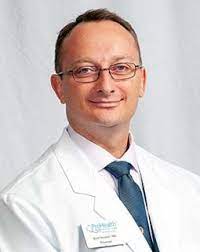Article
The Importance of World Heart Day, With Brett Nowlan, MD
Although they are often overlooked, awareness days serve an important role in educating the public and drawing attention to overlooked disease states. In a recent interview, Brett Nowlan, MD, reflects on the importance of awareness days.
Brett Nowlan, MD

In recognition of World Heart Day, Practical Cardiology is showcasing the sentiments of advisory board member Brett Nowlan, MD. As with most practicing cardiologists, for Nowlan, the celebration of World Heart Day is not one that requires balloons and fanfare. In fact, many argue the purpose of awareness days is not to engage clinicians in the field, but drum up attention towards organizations, disease, and public health crises among the general public and, perhaps, those in other fields.
With an interest in bringing attention to World Heart Day and gaining insight into the perception of such awareness days among practicing clinicians, we asked Nowlan for his thoughts in a recent interview. Nowlan noted having little specific interest in awareness days but commended them for their ability to draw awareness, something he said has had a very real impact on patients in his personal experience. Learn more about what he had to say by checking out the transcript below.
Practical Cardiology: What does World Heart Day mean to you as a cardiologist?
Nowlan: So, every day is World Heart Day for me if I'm really just to be honest. But you know, there's never a downside to raising awareness and refining awareness. You always get some patients that will watch a news segment, will read a news story, or read something online and then, sort of reengage with as the practitioner and say, "Hey, I saw this thing on television that says that, you know, sometimes a woman's symptoms are not the same as men. And I've been worried because I've had an aching left arm,". So, then you work that person up and you realize something significant going on. And that person was an excellent pickup based on that information. So, whereas I, personally, am not the target audience and I don't personally tend to pay attention to these things, I'm very supportive.
As I said, I think more information is never lost on the public and just as a corollary to that, I'm fascinated sometimes by patients that I talk to you and say to them, "You have coronary artery disease,", and they say, "What is that?" And they have no idea what I'm talking about. They have no awareness, and I sort of have to go from absolute ground principles. So, again, you know, I don't think anything like this is wasted frankly.





